by Paul Barry
Habits are great. Habits protect us from harm. My dad’s cough used to make him easy to locate in a crowded shopping centre. There’s nothing wrong with habits, per se. Sometimes though, our habits actually prevent us from progressing. Habits are not the things we choose to say or do, they are the things that occur without so much as a second thought. Given the difficulty level of achieving success in our nominated profession, removing all road blocks can only be to our advantage. So why not begin with the very language we use to describe the process?
How many of the following comments regularly flow from your mouth as a matter of course? Perhaps it’s time to re-evaluate your approach….
If you are genuinely sorry then don’t keep making the mistake (if in fact a mistake was made in the first place), otherwise ‘sorry’ is simply a demonstration of insecurity. If you are saying sorry in case the person didn’t think your performance was Oscar-worthy, then you aren’t apologising, you’re fishing for an ego boost. Frank Sinatra only had two rules: Never yawn in front of a lady and never say sorry. Add flossing to that and you have the trifecta of great advice.
Say instead: “I’ll just go again”, “Whoops” followed by a good performance, or better still, prepare so well that you have nothing to apologise for in the first place.
“I don’t know”
When I was a child my father would ask me: ‘What would you say if ‘I don’t know’ didn’t exist?’. It was the easiest go-to response to difficult questions. Problem is, it soon became the go-to response for easy questions too. It is lazy and it abrogates responsibility for your choices, increases your dependence on others, and frankly it’s unprofessional. Despite what you’re told by people selling you acting classes and casting director workshops, nobody has a clue what they’re looking for. Sure, they do when they see it. Sure, they have a general ballpark. Sure, they may settle for something if nothing better comes along. But really, nobody has a clue. What’s the ‘right’ objective? What is the ‘right’ choice? Nobody knows. Not even the writer truly knows. If it were blatantly apparent in the text it would be a bad script. I have asked many writers, directors and casting directors over the years what they want and they can’t answer. Even if they could, they offering me the same advice they offered everyone, or they would be robbing me of the only gift I have to give as an actor, my choice. The script contains nothing but clues and inferences, the rest is up to you. If you ‘don’t know’ then make it up. You’re a professional. That’s your job.
Say instead: ‘How about this?’, ‘Oh hey, I have an idea!’, ‘Is there something you’d like me to try next?’, or ‘This idea could work…’. Anything else turns you into a tradesman when great actors are actually artisans.
This may be true. Or you may suck and they’re having pity by representing you. Either way, there are only two solutions. Leave them or work with them. Don’t want to leave them for fear of having nothing? Sounds like you have nothing right now – unless you find passing the buck therapeutic. Worried that it is you that’s the problem? Then get yourself to some great classes (not just any classes, great classes) and make sure that’s not the case. In any business there is market research. However, there’s a very good reason market research isn’t done by family and friends of the company. They cannot be objective. You also cannot do market research with only people who are selling you something (teachers, casting director workshops, demo reel companies etc.). Find non-actor friends-of-friends or complete strangers and invite them over for a quiche and a screening night of your work. Ask them to honestly (and anonymously) write down what they think of what they saw. Honestly. Be general in specific areas about what you need to know. ‘Was it believable?’, ‘Was it interesting?’, ‘Do you see a market for what I do?’, ‘What shows would you see me appearing in?’. Pick people you are not likely to see again and get the best all-round responses from people who are most likely to be paying audience-members. Then listen to them. Don’t argue with them or try to justify your work to change their minds. Do not ask questions designed to lead to a compliment. Speak as if you are talking about someone else’s acting, not your own. If you think this is a lot of effort, time and money to spend, tally up how much effort, time and money you have already spent of classes, workshops, headshots and short films, resulting in nothing but confusion about where you’re placed in the industry. Treat yourself like a product and you’ll start to see gains, otherwise stop complaining and take what you get. The only person who turns up to a pity party is the host.
Say instead: ‘I’m having a meeting with my agent to create a plan of attack’, ‘My agent is doing everything they can with what I’ve given them’, or ‘I’m getting a new agent’. Problem solved.
This is highly likely. I guarantee you it is also not the reason you missed out on the job. It is an excuse. A boring one. I have been a professional reader for well over a decade. In this time I have seen thousands of castings. I have had an incredible amount of positive feedback as a reader and people have even sent me texts and gifts to say they couldn’t have done it without me. The law of averages though, tells us that not everyone can book the job. If I read well for 100 actors, still only one is going to get the role. On the flipside, if I read badly for one hundred actors, still one is still going to get the role. Keep in mind that if you had a bad reader, so did everybody else. Unless you are egotistical enough to believe they were bad just for you... I guarantee you the person to land the role won’t be wasting their time lamenting their luck at having someone who blandly stammered over the text, they will make the casting the best they can and roll the dice. As the old saying goes: ‘the harder you work, the luckier you get’.
Say instead: (To the reader) ‘Would it work if we picked up the cues a bit this time?’, ‘Just letting you know I’m going to keep talking there until you cut me off’, and ‘Is that my line there or yours?’ (even if you know it’s theirs). Otherwise, learn the lines so well and prepare so thoroughly (yes, even for a cold read) that nothing can possibly throw you. Ad lib until you get back on track, remain in character and never drop your preparation because the reader wasn’t perfect. No matter who you blame for a bad audition, the end result is that you get the job or you don’t.
Possibly the greatest lie we were ever told in acting classes was that we even needed a ‘motivation’. Actors frequently attribute their inability to nail a scene to having no ‘motivation’. Get over it. A motivation is ‘why’ your character wants what they want. It’s irrelevant. Writers may need to know it (and many would argue, not even then) but you don’t. It doesn’t help. In fact, it hinders your ability to simply pursue an objective. Think of the number of times in your career so far you have asked ‘why?’ instead of asking ‘what?’. ‘What do I want?’. Ask what your character wants and leave the writer and audience to wonder about the why.
Say instead: ‘What am I after right now?’, ‘What am I walking over there to do?’, or ‘What am I looking at when I play it out?’. Any question relating to ‘why’ will leave you less specific than you were before. ‘Why’ is also completely subjective. ‘What’ isn’t.
Many years ago I became tired of thanking people for coming to see my plays. I realized it meant they were doing me a favour, which I whole-heartedly believed they weren’t. I had spent months rehearsing, learning my lines, pouring my soul into them and publicising the show – and usually for little or no money. Then, to kick myself solidly in the teeth, I thanked them for paying a measly twenty bucks and taking two hours to come and see it. So I have never done it since. Have some respect for yourself, your effort and your craft. Thanking people for deeming your work worthy of their charity is demeaning. It is insecure. It is relegating you to the lowest status and it is unbecoming of a professional. A plumber wouldn’t thank you for hiring them, so why do you?
Say instead: If you must say anything, say: ‘I’m so glad you came’, ‘It was great that you saw it’. Even go so far as: ‘It means a lot to me that you were here’. Stop thanking people for coming, it’s like thanking them for eating the meal you spent two days preparing, having sex with you, or falling in love with you. They do these things because it changes their life, not because they had nothing better to do.
 “It was better last night/episode/millennium”
“It was better last night/episode/millennium”
When someone does see your show and offers you a compliment, for goodness sakes don’t tell them it was better on a night they didn’t attend. What can this possibly achieve? I know why actors do it and although they may not know why themselves so does the audience. It is a way of leaving them wondering how much better you might have been than tonight. Your self testimony cannot be refuted because they weren’t there. Unfortunately it has the exact opposite effect. It reduces their enjoyment and guarantees they’ll feel ripped off. Once again, you are a professional. You have good nights and tremendous nights, but you never have bad nights. Whenever someone tells me they were ‘better last night’ I feel like demanding my money back. Hm. Maybe next time I will….
Say instead: When somebody compliments you on your work, say: ‘Thanks’.
If people liked your work they will tell you. If they didn’t, there’s no point asking. It will elicit either embarrassment on their part or a lie to make you feel better. Which guaranteed you won’t. Perhaps your performance was so astonishing that they’re intimidated to be in your presence. Maybe they’re processing and have no desire to speak right now. It’s even possible that they simply cannot find the words. Don’t be afraid of silence after people watch your work and don’t ever ask if someone enjoyed your play, show, web series or Spaghetti Bolognese.
Say instead: If you need to talk about it at all, make statements like: ‘The world of the play was a fascinating era for me, do you know much about Bonnie and Clyde?’, ‘It was an incredible challenge, I’m hoping the work translated to the audience’, ‘It was great working on writing like Pinter’s. Have you read/seen much of his work before?’, or ‘I’ve never made Spaghetti Bolognese before, that’s one to tick off the list’, and so on. As you see, you can inspire comfortable conversation with gently leading statements without putting them on the spot, but where the conversation goes is up to them. It’s their opportunity to segue into your performance and if not, they don’t want to/don’t know how to/can’t talk about it. Period. Respect their right to keep schtum, because the last thing you want to do is force them to lie out loud. Personally, I prefer to fill silences after a show with: ‘So what are you guys up to now?’. More often than not, this breaks the ice long enough for someone to feel comfortable to invite you out for a drink and talk about what they just saw.
 “They didn’t cast me because ____”
“They didn’t cast me because ____”
Stop pretending you know why you weren’t cast. If you know why you weren’t cast then do something about it next time. The simple fact is that ‘they didn’t cast you’. That’s it. End of story. There are countless reasons for missing out on a job and most of them have nothing to do with your guesses. As someone who has spent at least as much time on the ‘other side’ during the last 18 years, I can tell you that wonderful people often miss out on bookings. It’s just the way it goes. On average you have a 1% chance of booking a job, and that’s only if you were totally prepared on the day. Otherwise, it’s highly likely the reason is less to do with nepotism, race or celebrity and more to do with you not knowing your lines or you failing to make interesting choices. But as a teacher of ours said at drama school years ago: ‘A good audition is never wasted’, so make every casting count. When you continue to complain and hypothesise about ‘unknowables’ you create excuses instead of solutions. Professionals don’t guess.
No. You wouldn’t. You would love a compliment. You would love affirmation. You would love to be doing a sex scene with Johnny Depp or Scarlett Johansson. You wouldn’t love their ‘feedback’. Quit using code and pretending you’re speaking English. If acting is about risk-taking and honesty, it begins here. When you send out your demo reel or ask someone to watch your stage/TV show, be honest about what you want. Are you actually going to change it based on their feedback? How does this ‘feedback’ help, exactly? Especially since even ‘experts’ regularly disagree. Years ago I did a medical role-play exercise for a hospital to train its graduate doctors in dealing with patients receiving bad news. When facing a patient seeking an HIV test they were specifically trained to ask two questions: 1) Why do you think you need the test, and 2) How would you respond if it came back positive? Most people don’t go to a doctor to find out they have a terminal illness, they go to find out they have a long, healthy life ahead of them. The same is true of actors seeking so-called ‘feedback’. What are you really asking for when you say you’d love feedback? If you don’t know what to do with the feedback or don’t think you can handle the worst-case scenario then don’t even ask. Most opinion-givers won’t be as well trained as those doctors. The final point I’ll make on this is that most people’s opinions are just that. Opinions. Ask genuine experts and aggregate their responses, or don’t ask. The road to success is littered with the corpses of people who asked the wrong person and got an unhelpful opinion.
BONUS tip:
As Tommy Lee Jones’ character said to Harrison Ford’s protestations of innocence in The Fugitive, “I don’t care”. It doesn’t change the outcome. I have given performances in which I felt nothing and come out with rave reviews. I have given incredibly indulgent performances, where I wallowed in my own emotional quagmire, and been met with blank stares. How the actor ‘feels’ is entirely, wholly, indisputably irrelevant. It’s up there with the ‘motivation’ lie. How the audience feels? Ay, there’s the rub. Now if you believe it’s important to dwell on your own internal workings, then please learn how to make it happen so your feelings match the audience’s 100% of the time, otherwise you’re just guessing. Have I mentioned that you’re a professional? That means people are paying you to deliver them a result. I have worked with many actors whose wonderful performance was soon ruined by them claiming they ‘didn’t feel it’. Well I did. Don’t insult me. If the director, casting director, teacher or audience member felt it, then have the respect to leave them their satisfaction. Move onto something you can control. There comes a time when we must decide if acting is for us, for the audience, or both. Ideally the answer is both, but in the meantime, it must be for the audience. Otherwise we aren’t professional actors, we are paid to engage in histrionics and self-indulgence.
Paul Barry is an actor, director, writer, teacher and blogger. He co-owns Acting 4 Camera and Showreels Australia. He lives in LA, but regularly teaches via Skype, all around the world.
You may also like:
Ten Things For Actors To Start Saying…
10 New Year’s Resolutions For Actors
(The blogs you see on www.acting4camera.com are free, but they don’t write themselves. If you find the information useful, feel free to donate below to keep them coming. Your contribution of any amount is graciously welcomed!)
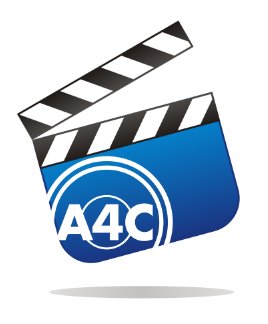
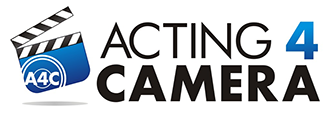







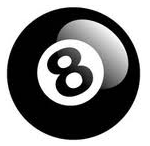

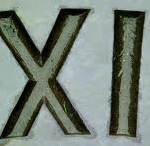



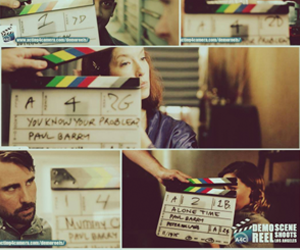
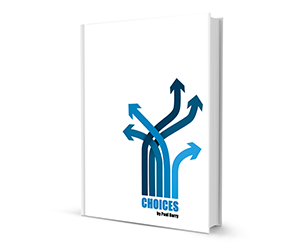
Follow Us!